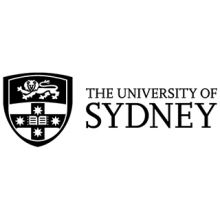Australia’s richest universities have ratcheted up their already dominant share of international students this year, according to Department of Education estimates.
Figures published in response to a Senate order highlight the disparate impacts of the government’s recent policies, and help explain its resolve to cut overseas admissions most sharply at the fastest growing institutions.
The share of new overseas student commencements at the 15 richest universities – those with revenue over A$1 billion (£513 million) in 2023 – has risen by 10 percentage points this year to 73 per cent, leaving a little over one-quarter scattered among the other 23 publicly funded institutions.
All but two of the richer universities have seen their international commencements increase this year, while all but five of the poorer group saw foreign admissions decline.
The estimates confirm that financially struggling institutions have borne the brunt of visa processing delays and rejections since late last year. Universities mainly blame ministerial direction 107 (MD107), which prioritised visa processing for students enrolled with institutions deemed to have low immigration risk.
All but three of the 15 richest universities are rated low immigration risk while all but four of the remaining institutions have medium- or high-risk ratings.
The government’s proposed caps, to apply from January, would reset international student admission parameters so that they reflected shares of overseas commencements in 2019 and 2023. Education minister Jason Clare wrote to the leaders of all 38 universities on 16 September, warning that MD107 would remain in place for longer if the bill to impose caps was delayed or defeated.
The letter notes that vice-chancellors have criticised the “uneven distribution” and “budget uncertainty” caused by the visa processing changes. “The legislation that is currently before the parliament fixes this,” it says.
The Department of Education’s estimates – which have been disputed by some universities – show that 2024 increases in international commencements have exceeded 6,000 at UNSW Sydney, 4,000 at Sydney and Monash universities and 2,000 at the University of Western Australia and RMIT University. Combined admissions at Australia’s five multibillion-dollar institutions have risen by 37 per cent since last year and 51 per cent since 2019.
Commencements across the poorer institutions have declined by 20 per cent since 2023 and 4 per cent since 2019.
Australian National University policy expert Andrew Norton said the government may consider caps the only option to stop “certain universities” from expanding rapidly and to curb enrolment from Chinese students who had proven “less sensitive” to other policy changes.
Professor Norton said that while universities needed international education revenue to cover some of their costs, only “grand ambition” could explain the scale of overseas enrolments at some institutions.
But while a mechanism to redistribute discretionary income more equitably might make sense at “a level of high principle”, he said caps would not work in practice because international education was a competitive market. “Ultimately you can’t force international students to go anywhere they don’t want to go.”
Political pressure to curb international enrolments has not abated, with new figures showing that a net increase of over 388,000 in migrant numbers since mid-2023 has driven the national population above 27 million.
But debate on the legislation has been delayed, and while the opposition favours capping international students it has refused to say whether it will vote for the bill.
In letters sent on 20 September to federal, state and territory treasurers, Universities Australia said MD107 was depriving the nation of A$19 million a day.
Chief executive Luke Sheehy said the costs were mounting, with parliament due to sit only briefly in a fortnight’s time and then not for another four weeks. “MD107 is doing more harm than good,” the letters say. “It needs to be scrapped now, not in a few weeks or months.”
Register to continue
Why register?
- Registration is free and only takes a moment
- Once registered, you can read 3 articles a month
- Sign up for our newsletter
Subscribe
Or subscribe for unlimited access to:
- Unlimited access to news, views, insights & reviews
- Digital editions
- Digital access to THE’s university and college rankings analysis
Already registered or a current subscriber?











